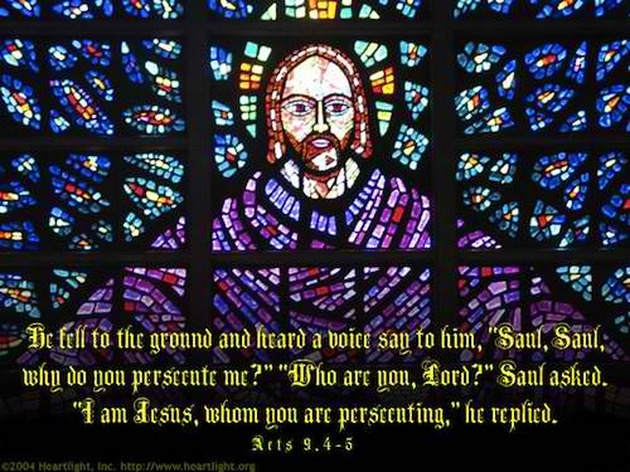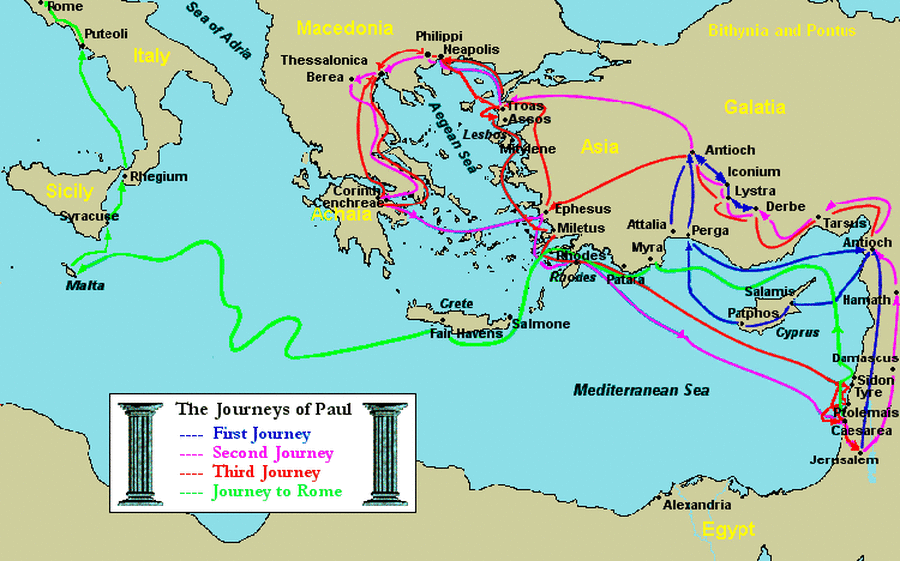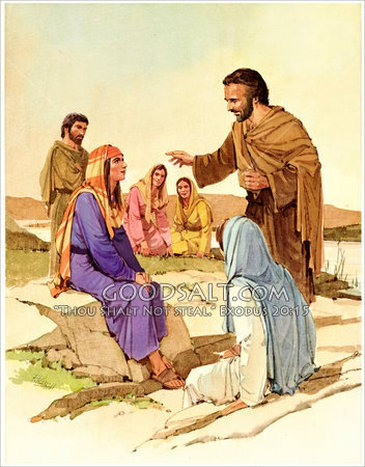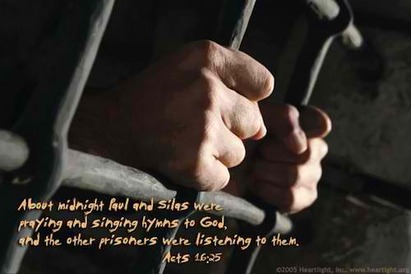The Book of Acts

The book of Acts provides the basic history of the spread of Christianity during the thirty years immediately following the death and resurrection of Jesus Christ. It serves as a link between the Gospels and the Letters. It can be called "The Acts of the Holy Spirit," because it teaches about the coming and work of the Spirit.
Evidence outside the Scriptures and inferences from the book itself lead to the conclusion that the author was Luke. A likely date for the book of Acts is A.D. 63.
The theme of the book is best summarized in 1:8. Luke weaves together different interests and emphasis as he relates the beginnings nad expansion of the church. The design of the book revolves around (1)key person: Peter and Paul; (2) important topics and events: the role of the Holy Spirit, pioneer missionary outreach to new fields, conversions, the growth of the church, and life in the Christian community; (3) significant problems: conflict between Jew and Gentile, persecution of the church by some Jewish elements, trials before Jews and Romans, confrontations with Gentiles, and other hardships in the ministry; (4) geographical advances: from Jerusalem to Rome.
Evidence outside the Scriptures and inferences from the book itself lead to the conclusion that the author was Luke. A likely date for the book of Acts is A.D. 63.
The theme of the book is best summarized in 1:8. Luke weaves together different interests and emphasis as he relates the beginnings nad expansion of the church. The design of the book revolves around (1)key person: Peter and Paul; (2) important topics and events: the role of the Holy Spirit, pioneer missionary outreach to new fields, conversions, the growth of the church, and life in the Christian community; (3) significant problems: conflict between Jew and Gentile, persecution of the church by some Jewish elements, trials before Jews and Romans, confrontations with Gentiles, and other hardships in the ministry; (4) geographical advances: from Jerusalem to Rome.

I. Peter and the Beginnings of the Church in Palestine (1:1-12:25)
A. "Throughout all Judea and Galilee and Samaria" (1:1-9:31; see 9:31)
B. "To Phoenicia and Cyprus and Antioch" (9:32-12:25; see 11:19)
II. Paul and the Expansion of the Church from Antioch to Rome (13:1-28:31)
A. "Through the Phrygian and Galatian Region" (13:1-15:35; see 16:6)
B. "Over to Macedonia" (15:36-21:16; see 16:9)
C. "To Rome" (21:17-28:31; see 28:14)

The book of Acts also records the transition of the Church from being almost exclusively a Jewish institution into becoming a Gentile and an international institution.
Consequently, it records the transition of Christianity from a Jewish religion into an international religion.
Chapters 1-6:7, contain the events that surround Jerusalem and the infancy of the church. The contents of these passages surround the early evangelistic work in Jerusalem. It describes the events of Pentecost, and the amazingly bold sermon presented by Peter to all the Jews who gathered for the Feast of Weeks. The result of this sermon was 3000 new believers.
Consequently, it records the transition of Christianity from a Jewish religion into an international religion.
Chapters 1-6:7, contain the events that surround Jerusalem and the infancy of the church. The contents of these passages surround the early evangelistic work in Jerusalem. It describes the events of Pentecost, and the amazingly bold sermon presented by Peter to all the Jews who gathered for the Feast of Weeks. The result of this sermon was 3000 new believers.

In chapters 6:8-9:31, there is a shift in the focus of the evangelism to other areas. Although the ministry continued in Jerusalem, witnessing the Gospel also include those who were not completely Jewish (Samaritans and Proselytes).
In 8:5, Philip traveled down to Samaria, “and began proclaiming Christ to
them”. Stephen is falsely accused and is stoned to death while he preaches to the religious leaders. As Stephen was dying, he prayed to Jesus Christ, “Lord Jesus, receive my spirit!” (7:59). Stephen’s executioners laid their robes at the feet of a young persecutor named Saul, who would soon become known as “Paul the Apostle”. Saul spent his early days oppressing Christians and imprisoning them, until he had a life changing experience with Jesus Christ on the road to Damascus (9:3).
In 8:5, Philip traveled down to Samaria, “and began proclaiming Christ to
them”. Stephen is falsely accused and is stoned to death while he preaches to the religious leaders. As Stephen was dying, he prayed to Jesus Christ, “Lord Jesus, receive my spirit!” (7:59). Stephen’s executioners laid their robes at the feet of a young persecutor named Saul, who would soon become known as “Paul the Apostle”. Saul spent his early days oppressing Christians and imprisoning them, until he had a life changing experience with Jesus Christ on the road to Damascus (9:3).

From chapters 9:32-12:24, there is found the first gospel sowing among the Gentiles. Peter received a revelation that the gospel is also to be shared among the Gentiles. Cornelius, a Roman Commander and some of his men become followers of Christ. Saul, the persecutor, has become a passionate follower of Christ and immediately begins preaching the gospel. We also find that the term “Christians” is first used in Antioch.

In 12:25-16:5 the gospel is shared geographically to the Gentiles in a different region farther outside Jerusalem. Saul changes his Hebrew name to Paul, a Greek name, to reach the Gentiles. Paul and Barnabas begin their first and second missionary journeys to the Gentile world with both success and opposition. In chapter 15, the Jerusalem Council takes place, to authorize spreading the gospel message to the Gentile nations.

From 16:6-19:20, after they are forbidden to enter Asia, Paul receives a vision. He and Silas head farther West to Macedonia to preach the gospel message in the Gentile European regions. Lydia, a woman who sold purple fabric, became the first convert along with her entire household. Paul preached to the Greek philosophers on Mars Hill and next sets out on his third missionary journey. “The word of the Lord was growing mightily and prevailing” (19:20).

The final chapters, from 19:21-28, describe Paul’s travel to Jerusalem where he was arrested and then his difficult travel to Rome to be put on trial. When he arrives, he is imprisoned in house arrest and the book of Acts abruptly ends without describing the events of his trial before Caesar.
continue to Romans...
continue to Romans...